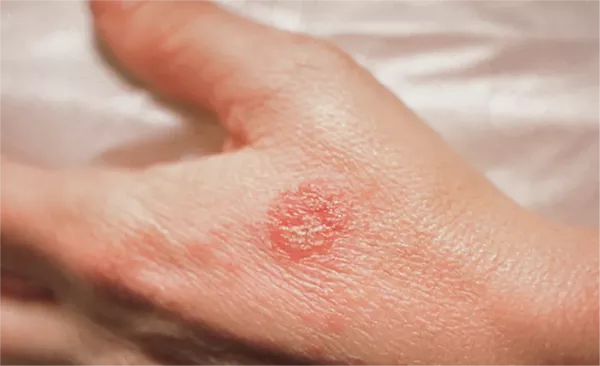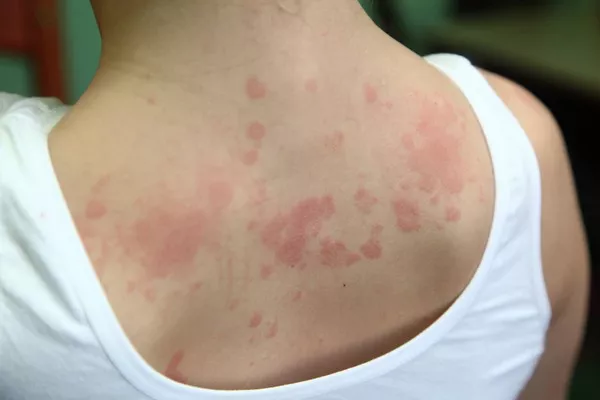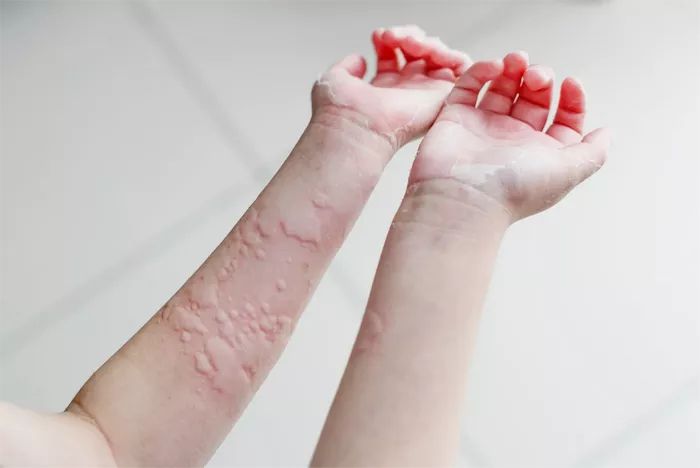Eczema, also known as atopic dermatitis, is a common skin condition characterized by inflammation, itchiness, and redness. While there’s no definitive cure for eczema, various treatment options aim to manage symptoms and reduce flare-ups. Among these options, antibiotics have garnered attention for their potential role in managing eczema symptoms, particularly when bacterial infections complicate the condition. In this article, we delve into the use of antibiotics in eczema treatment, exploring their mechanisms of action, efficacy, safety considerations, and future directions in research and clinical practice.
Understanding the Role of Antibiotics in Eczema Treatment
Eczema is often associated with impaired skin barrier function, allowing allergens, irritants, and bacteria to penetrate the skin more easily, triggering inflammation and exacerbating symptoms. Bacterial colonization of the skin, particularly by Staphylococcus aureus, is common in individuals with eczema, leading to skin infections that can worsen the condition.
Antibiotics are commonly prescribed in eczema management to address bacterial overgrowth and infection. They work by targeting and eliminating pathogenic bacteria, thereby reducing inflammation and promoting skin healing. However, the use of antibiotics in eczema treatment remains a topic of debate due to concerns about antimicrobial resistance, potential side effects, and the need for judicious antibiotic stewardship.
Antibiotic Options for Eczema
Several antibiotics may be used in the management of eczema, either orally or topically. Oral antibiotics are typically reserved for more severe cases of eczema or when bacterial infection is suspected. Commonly prescribed oral antibiotics include:
1. Cephalexin: This first-generation cephalosporin antibiotic is effective against a wide range of bacteria, including Staphylococcus aureus, commonly implicated in eczema-related skin infections. It works by inhibiting bacterial cell wall synthesis, leading to bacterial cell death. Cephalexin is often prescribed for short courses to treat acute flare-ups of eczema.
2. Dicloxacillin: Another antibiotic from the penicillin class, dicloxacillin, is effective against penicillinase-producing Staphylococcus aureus strains. It works by interfering with bacterial cell wall synthesis, similar to other penicillins. Dicloxacillin is often prescribed for the treatment of skin and soft tissue infections associated with eczema.
3. Clindamycin: This lincosamide antibiotic is active against a variety of bacteria, including Staphylococcus aureus and Streptococcus pyogenes. Clindamycin inhibits bacterial protein synthesis by binding to the 50S ribosomal subunit, thereby preventing peptide bond formation. It is sometimes used in combination with other antibiotics or topical agents for the treatment of eczema-related skin infections.
Topical antibiotics are another option for managing localized bacterial infections in eczema. These formulations are applied directly to the affected skin and are generally considered safer than oral antibiotics, with reduced systemic absorption and lower risk of systemic side effects. Common topical antibiotics used in eczema treatment include:
1. Mupirocin: This topical antibiotic is active against a variety of gram-positive bacteria, including Staphylococcus aureus. Mupirocin inhibits bacterial protein synthesis by binding to bacterial isoleucyl-tRNA synthetase, thereby preventing the incorporation of isoleucine into bacterial proteins. It is often prescribed for the treatment of impetigo, a common bacterial skin infection in individuals with eczema.
2. Neomycin: Neomycin is an aminoglycoside antibiotic with broad-spectrum antibacterial activity. It works by binding to the bacterial 30S ribosomal subunit, thereby inhibiting protein synthesis and leading to bacterial cell death. Neomycin is commonly included in topical antibiotic preparations for the treatment of eczema-related skin infections.
Considerations and Precautions
While antibiotics can be effective in managing bacterial infections associated with eczema, their use should be judicious to minimize the risk of antimicrobial resistance and other potential adverse effects. Before prescribing antibiotics for eczema, healthcare providers should consider the following:
1. Antibiotic Resistance: Prolonged or indiscriminate use of antibiotics can contribute to the development of antibiotic-resistant bacteria, making future infections more difficult to treat. Healthcare providers should adhere to antimicrobial stewardship principles and prescribe antibiotics only when necessary.
2. Side Effects: Antibiotics, whether taken orally or applied topically, can cause side effects ranging from mild gastrointestinal upset to severe allergic reactions. Patients should be monitored for adverse effects, and alternative treatment options should be considered if side effects occur.
3. Skin Sensitization: Some individuals may develop allergic reactions or contact dermatitis to topical antibiotics, particularly neomycin. Healthcare providers should be aware of potential skin sensitization and consider alternative topical agents in susceptible individuals.
4. Concomitant Therapy: Antibiotics may be used in combination with other eczema treatments, such as topical corticosteroids or emollients, to optimize symptom management and promote skin healing. Healthcare providers should tailor treatment regimens to individual patient needs, considering the severity of eczema, presence of bacterial infection, and treatment response.
Future Directions in Antibiotic Therapy for Eczema
Research into novel antibiotic therapies for eczema continues to evolve, with a focus on developing targeted antimicrobial agents with improved efficacy and safety profiles. Future directions in antibiotic therapy for eczema may include:
1. Narrow-Spectrum Antibiotics: Novel antibiotics that target specific bacterial pathogens associated with eczema, such as Staphylococcus aureus, while sparing beneficial skin microbiota, could help reduce the risk of antimicrobial resistance and minimize disruption to the skin microbiome.
2. Topical Immunomodulators: Immunomodulatory agents that modulate the skin’s immune response to bacterial colonization and infection may offer alternative approaches to managing eczema-related skin inflammation and reducing the need for systemic antibiotics.
3. Probiotics and Prebiotics: Strategies aimed at restoring the balance of the skin microbiome, such as the use of probiotics and prebiotics, may help prevent bacterial overgrowth and reduce the incidence of eczema flare-ups, potentially reducing the need for antibiotic therapy.
Conclusion
In conclusion, antibiotics play a crucial role in the management of eczema, particularly when bacterial infections complicate the condition. While antibiotics can effectively reduce bacterial colonization and inflammation in eczema, their use should be judicious, taking into account the risk of antimicrobial resistance and potential side effects. Future research efforts aim to develop targeted antibiotic therapies and alternative approaches to managing eczema-related skin inflammation, ultimately improving outcomes for individuals living with this chronic skin condition.
Related Topics:
What Is the Best Cream for Facial Eczema


























